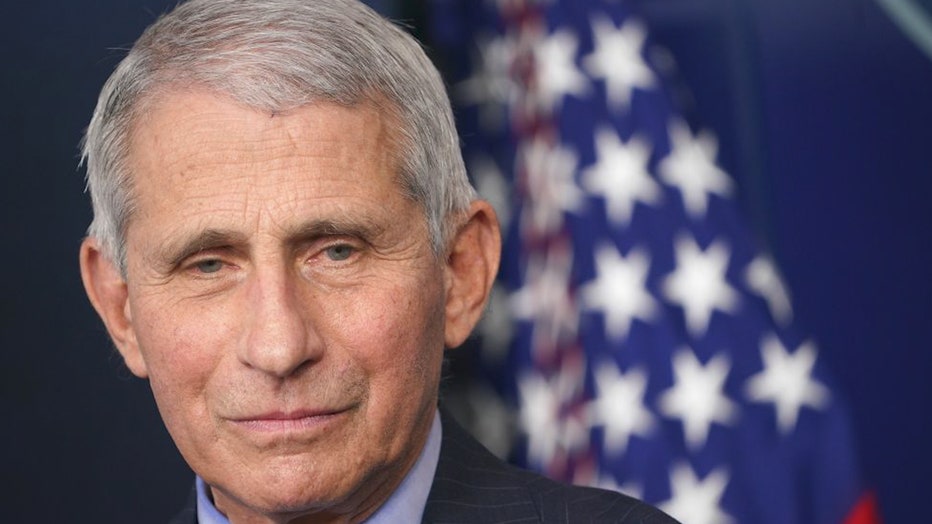‘Inexplicable’: Fauci says now is not the time for states to roll back COVID-19 restrictions
Dr. Anthony Fauci, the United States’ top infectious disease expert, said states rolling back health measures meant to protect Americans from COVID-19 amid the ongoing pandemic is "inexplicable."
In an interview with CNN on Thursday, the chief medical adviser to the White House stressed that the United States is still experiencing an extremely high number of new daily infections, and easing restrictions such as mandatory mask wearing could lead to a new surge in cases.

FILE - Director of the National Institute of Allergy and Infectious Diseases Anthony Fauci looks on during the daily briefing in the Brady Briefing Room of the White House in Washington, DC on Jan. 21, 2021.
"We’ve been to this scene before, months and months ago, when we tried to open up the country and open up the economy when certain states did not abide by the guidelines, we had rebounds which were very troublesome," Fauci said.
"What we don’t need right now is another surge so, just pulling back on all of the public health guidelines that we know work, and if you take a look at the curve, we know it works," Fauci said.
"It’s just inexplicable why you would want to pull back now," Fauci continued. "I understand the need to want to get back to normality but you’re only going to set yourself back if you just completely push aside the public health guidelines, particularly when we’re dealing with anywhere between 55 to 70,000 infections per day in the United States. That’s a very, very high baseline," the longtime director of the National Institute of Allergies and Infectious Diseases said.
When asked about remarks made by Texas Sen. John Cornyn on March 3 that mask mandates and other preventative health measures were merely arbitrary and had no demonstrative connection to public health, Fauci stated that Cornyn’s claim was simply not true.
"Well, first of all, they’re not arbitrary. They’re based on evidence and data from science. We know that these interventions work, it’s very clear. When you implement them, you see the cases go down. When you pull back, the cases go up," Fauci said. "It’s not arbitrary, it’s not empiric, and it’s based on scientific data."
Texas Gov. Greg Abbott announced this week that the statewide mask mandate will be terminated starting March 10, a move President Joe Biden called "neanderthal thinking."
Fauci stressed that now is not the time to pull back restrictions as vaccination efforts ramp up with the approval of a third COVID-19 vaccine.
"Now’s the time to really crush this by doing both public health measures and accelerating the vaccinations, like we’re doing," Fauci said.
Dr. Rochelle Walensky, director of the U.S. Centers of Disease Control and Prevention, stated on Monday that while the emergency use approval of Johnson & Johnson’s one-dose COVID-19 vaccine was good news for mass vaccination efforts, now is not the time to relax health measures and mask restrictions.
RELATED: Gov. Abbott ends statewide mask mandate, fully reopens all Texas businesses
With new daily cases baselining between 55,000-70,000, America needs to remain disciplined as the country works to reach herd immunity, Walensky said.
"Please hear me clearly: At this level of cases, with variants spreading, we stand to completely lose the hard-earned ground we have gained. These variants are a very real threat to our people and our progress. Now is not the time to relax the critical safeguards that we know can stop the spread of COVID-19 in our communities, not when we are so close," Walensky said.
"I understand the temptation to do this. 70,000 cases a day seemed good compared to where we were just a few months ago. But we cannot be resigned to 70,000 cases a day, 2,000 daily deaths," Walensky added.


